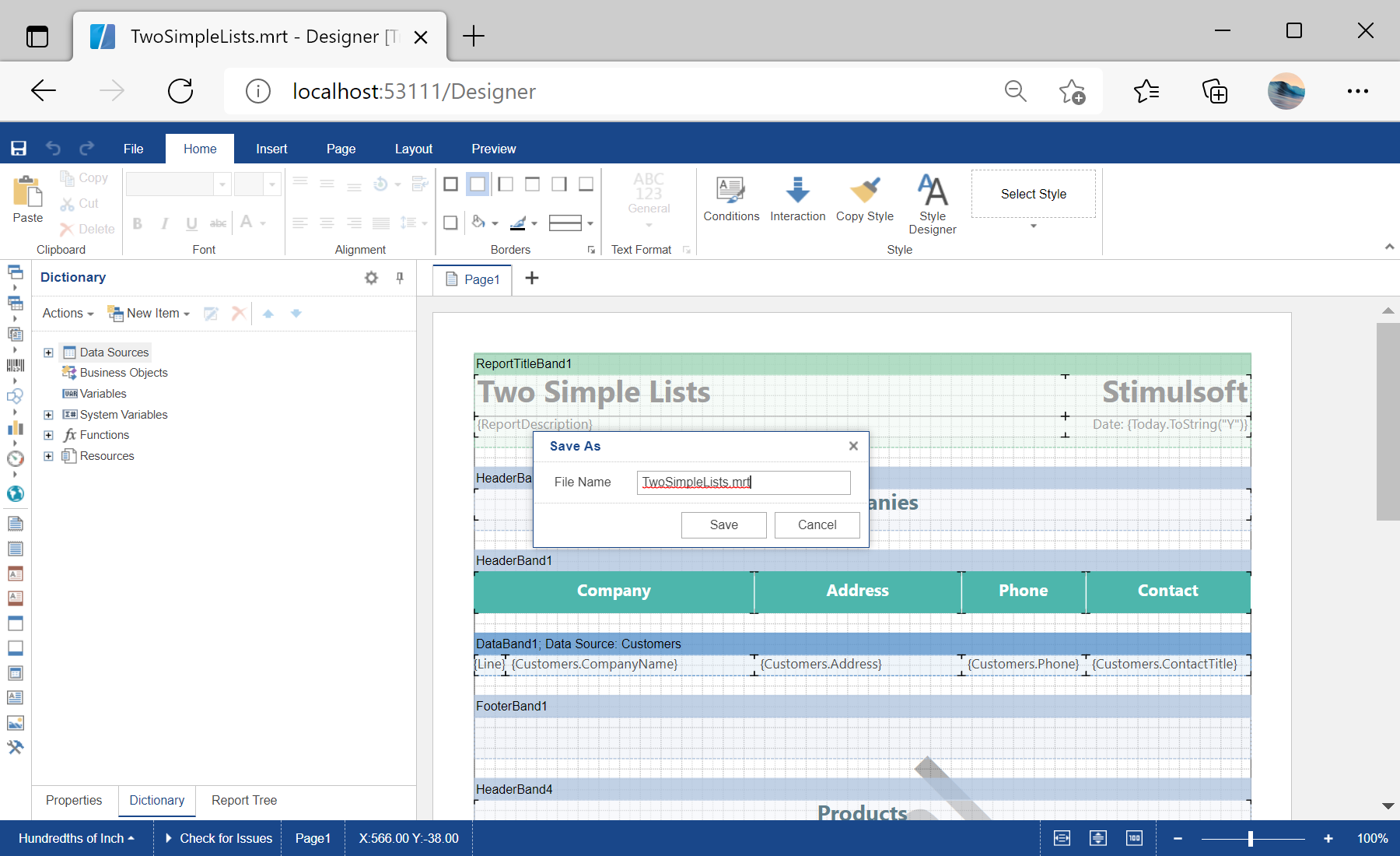This example shows how to load a report template and edit it in the designer.
First, you need to add the
StiMvcDesigner component to the view page. Also you need to pass the
StiMvcDesignerOptions object to the constructor. The minimum required options are two actions -
GetReport and
DesignerEvent. It is required to define the
PreviewReport action which is necessary to register the data to preview the report.
To add the ability to save the report, you need to define the
SaveReport action. Also you can define the
SaveReportAs action if necessary:
@using Stimulsoft.Report.Mvc;
...
@Html.Stimulsoft().StiMvcDesigner(new StiMvcDesignerOptions()
{
Actions =
{
GetReport = "GetReport",
SaveReport = "SaveReport",
//SaveReportAs = "SaveReportAs",
DesignerEvent = "DesignerEvent"
}
})
In the options above we define several actions, and we need to add it in the controller.
The
GetReport action loads the report template and returns answer to the client part of the designer using the
GetReportResult() static method. In the parameters of this method, the report object should be passed:
public ActionResult GetReport()
{
var report = new StiReport();
report.Load(Server.MapPath("~/Content/Reports/TwoSimpleLists.mrt"));
return StiMvcDesigner.GetReportResult(report);
}
The
SaveReport action will be invoked when you press on the Save button in the designer. In this action, you can get the report object and save it, for example to file, or to JSON string and then to database. To prepare the answer for the client you should use the
SaveReportResult() static method. In the parameters of this method, you can pass the error message, if it is needed. By default, the parameters are not required:
public ActionResult SaveReport()
{
return StiMvcDesigner.SaveReportResult();
}
If you define the
SaveReportAs action on the view page, also you should add this action to the controller. All operations in this action can be the same as in the
SaveReport action:
public ActionResult SaveReportAs()
{
return StiMvcDesigner.SaveReportResult();
}
The
DesignerEvent action handles all the designer events (adding and editing report components, work with the data dictionary, switch pages, zooming, etc.) and returns the response to the client using the
DesignerEventResult() static method:
public ActionResult DesignerEvent()
{
return StiMvcDesigner.DesignerEventResult();
}
In the screenshot below you can see the result of the sample code:




